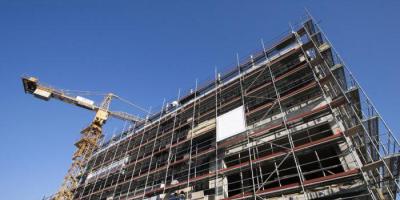Since the legislation does not provide a standard form of agreement, the developer has a large area for personal creativity regarding the drawing up of the DDU agreement and its sample.
Once you are convinced that the developer is reliable and all documentation is in order, you can begin concluding the contract.
Mandatory conditions for a DDU agreement, sample drafting
When concluding a contract, you must ensure that it contains the following points:
A detailed description of the object to be transferred. Such an object must have a plan that indicates all the premises of the apartment, their sizes, and placement. In addition, the contract specifies the address, entrance, building, floor and other data identifying the object.
After completion of construction, it often happens that the area indicated in the documentation does not coincide with the area of the apartment in kind. Therefore, in the contract, many organizations include a clause regarding additional payment by the developer for reducing the area and payment by the shareholder for excess square meters.
In general, first of all, the contract must ensure that the person with whom the contract is concluded is indicated. If this is not the developer’s organization itself (its director), but another person, then you need to check the availability of a power of attorney on the basis of which this person acts.
The contract also specifies the warranty period within which the developer will be responsible for the constructed residential building.
The price must be stated. It must be strictly fixed and expressed in rubles. It is indicated by what funds the debt will be repaid (personal or borrowed). It is important that the agreement states that the funds are paid from the moment they are received by the bank from the equity holder, and not from the moment they are received by the developer, because often banking transactions are not carried out in a day or two, which makes the buyer nervous, while his money “wanders” in the system.
It is important to take into account the fact that payment for utilities is carried out not from the moment the construction of the house begins and not from the moment it is put into operation, but from the time when the parties sign the housing acceptance certificate. Therefore, this condition must also be provided for in the contract.
Important terms in the contract
Contract time. Its completion must coincide with the full fulfillment of obligations by the two parties and not earlier.
Apartment delivery deadlines. They should be specifically defined, for example, “...no later than March 11, 2016,” rather than “...early 2016” or “first quarter 2016.” By specifying the terms vaguely, developers use a trick, because if it is necessary to make a claim, the shareholder is obliged to wait until the last day of the end of the quarter. And if the period is completely vague, then it will be difficult to prove anything at all.
The housing issue today is more relevant than ever. Currently, Russians, as a rule, give preference to purchasing housing in new buildings. The most popular option for purchasing real estate is the conclusion of a pre-departmental contract at various stages of construction. What kind of agreement is this? What nuances should the buyer know?
Shared construction is...
Shared construction is a special form of investment. Within its framework, a construction company is engaged in attracting funds from citizens or organizations that are required for the construction of real estate objects. Citizens who invest money in housing under construction are directly involved in shared construction. The development company enters into a contract with them. What is this? The abbreviation stands for equity participation agreement.
Thus, the process of constructing a real estate property is as follows:
- A construction company leases or purchases land for construction of a facility.
- The developer enters into agreements with citizens.
- Each participant in shared construction pays the cost of his share during the construction process.
- When citizens who have entered into a DDU become home owners.
Participants
Participants in shared construction are:
- Developer. This is a legal entity that has the rights to use or own a land plot and a construction permit. It can have any organizational and legal form. The main tasks of the developer are to attract capital and construct real estate.
- a citizen who decided to invest his own money in construction. Sometimes a legal entity can act as a shareholder.

Regulation of legal relations
Relations between participants in shared-equity construction are regulated at the level of federal legislation. According to the law on DDU (214 Federal Law), an agreement concluded between a citizen investor and a developer must contain:
- which is determined according to the existing one and after completion of construction will become the property of the shareholder.
- Cost of the object.
- Payment order.
- The period during which the object will be built and handed over to shareholders.
It is important to note that this law defines a rather strict framework regarding the period of completion of construction. In particular, according to 214 Federal Law of the DDU, the contract can be terminated at the initiative of the shareholder if the construction deadlines are not met. Shareholders have the right to receive reliable and complete information about the progress of construction.
Construction object
According to Federal Law 214, the DDU must contain information about the construction project. The objects can be both residential and non-residential premises of houses. They also include common property (attics, basements, staircases).
Registration of preschool educational institution
All childcare centers must undergo mandatory registration with Rosreestr. The agreement that has passed through this authority is considered concluded. At the same time, you can conclude a DDU for those objects for which it was issued no earlier than April 1, 2005.

The law also defines the stages of registration of preschool educational institutions:
- Collection of necessary documentation, payment of state fees.
- Submitting documents for registration to the territorial office of Rosreestr. There, the DDU participant is provided with a receipt containing the date of acceptance of the documents with their list, contact information, name and signature of the Rosreestr employee.
- Issuance of a registered agreement.
The period for registering a DDU for the first shareholder cannot exceed 18 days, and for subsequent ones - 5 days. Upon receipt of a registered DDU, a passport of the shareholder and a receipt will be required.
Price
DDU is an agreement in which the price of the property must be indicated, as well as the procedure for paying the amount. The developer determines the cost. Payment under the agreement must be made exclusively after the registration of the DDU. Often, equity holders are provided with payment in installments. Price is subject to change. The reason for this may be a change in the area of the property based on measurement. Usually the minimum possible deviations are specified in the contract.

It is important to note that the price must be indicated in the contract in rubles (along with kopecks). When another country's currency is used, a fixed rate is quoted. Until registration of the DDU, some developers insist on paying a certain amount; such actions are considered illegal. In this case, the developer may be fined up to a million rubles.
Documentation
If an apartment is purchased under a DDU, the package of documents submitted by the shareholder will be as follows:
- DDU along with additions and applications.
- Application from a construction organization for registration of a preschool building.
- Application from the shareholder to register the agreement.
- Passport of the shareholder (if submitted in person).
- Notarized power of attorney (when submitting documents through a representative).
- Notarized consent from the spouse to purchase real estate.
- Pledge agreement (if loan funds are attracted).
- Brief description of the object being built.
- Receipt for payment of state duty.
If the applicant is a minor, guardians submit documents for him. In this case, it is necessary to submit papers confirming guardianship.
The developer is required to:
- project declaration;
- building permit;
- insurance or surety contract.
How to check?
The registration of this document is carried out by Rosreestr. DDUs, in accordance with current legislation, are subject to mandatory registration. They should not contain clauses that in one way or another infringe on the rights of shareholders. When purchasing an apartment in a building under construction, you must check the documentation for the land plot. The clause of the agreement on the type of participation must indicate the type of structure (apartment or high-rise building, low-rise construction). There should be no other wording, otherwise such actions are regarded as fraudulent.

To make sure that the DDU was actually registered, you must carefully read it upon receipt. It must be marked. You can also get an extract from the Unified State Register.
Assignment
The DDU has pitfalls, like any agreement. This is especially true if the shareholder has fully paid the developer the money under the contract and wants to sell the property. In most cases, the cost of such housing becomes higher. An assignment is also called an assignment agreement. You can issue it several times before
Buyers should note that they are offered to purchase not only real estate, but also obligations under the DDU. Therefore, before purchasing, you must familiarize yourself with the technical and design documentation. It is also advisable to verify the validity of the contract itself.
Termination of DDU
Under certain circumstances, it is possible to terminate a PDU. What is this procedure and what is its essence? The reason for termination can only be failure to fulfill obligations under the contract by the developer or participant. The initiative for termination can come from both parties. Conditions for unilateral termination may be as follows:
- The participant was late with payment for more than 2 months.
- The constructed facility has significant drawbacks.
- The developer delayed the delivery of the house by more than 2 months.

Also, the shareholder has the right to file a lawsuit if the construction organization has unauthorizedly made changes to the design documentation or the terms of the contract.
Things to consider
So, like any agreement, it has many nuances and clauses. Pitfalls can be encountered at every stage of its conclusion. Here are the main points to pay attention to:
- Information about the construction organization in the DDU must be complete (address, name, authorized persons) and coincide with the data in the design and permitting documents.
- If registration is carried out by a representative of the developer, he must have documentation of the delegation of these rights.
- The DDU must contain a detailed description of the object and deadlines for delivery.
- A warranty period must be signed (5 years in the case of residential premises).
- The DDU must reflect information about the area of the apartment, payment terms in cases of change.
- It is not allowed to contain clauses in the contract that state that the developer will unauthorizedly change the documentation.
- The agreement is valid until the parties fully fulfill their obligations.
- Commissioning dates must be accurate.
- The list of force majeure circumstances prescribed in the DDU cannot be long. The following formulations are allowed: war, terrorist attack, natural disasters.
- An object under construction is not considered to be of high quality if it is not put into operation. This point must be described in the contract.
- The cost of housing must be indicated per 1 square meter in Russian or other foreign currency with a fixed rate.
- The obligations of the shareholder can be considered fulfilled from the moment the funds are deposited into the bank into the developer’s accounts.
- The procedure for terminating the contract and the amount of penalties must be described.
- The DDU must contain conditions for reimbursement of the shareholder's expenses in the event of significant deficiencies in the property.
- According to the agreement, the developer has the right to use the shareholder’s funds only for the construction of the facility.
- There should be no clauses on concluding agreements with third organizations (for example, with a management company).

The most common way to purchase housing in recent years is pre-owned housing. What is this? This is an agreement on shared participation in construction. It must be concluded with the development company. This document has many pitfalls. However, the procedure for its conclusion is described in detail in Federal Law, numbered 214. Therefore, in order to avoid unpleasant situations in the future, you should carefully consider the procedure for its conclusion. In no case should he infringe on the rights of the shareholder in one way or another. Otherwise, your rights can be protected through court. But if the buyer has some doubts or does not understand the current legal regulations, he can always seek the help of a lawyer.
The Federal Law on Shared Participation in Construction 214, together with the Civil Code of the Russian Federation and the law protecting consumer rights, regulates the relationship between a potential buyer of residential real estate and the developer. But single sample contract, recording the relationship of the parties on paper, not provided for by law. Therefore, buyers needs to be studied thoroughly the text of the agreement proposed by him, so as not to multiply the ranks of defrauded shareholders.
Seven signs of the legitimacy of a DDU
Under the heading “Agreement of shared participation in the construction of Federal Law 214” of the agreement proposed for signing, the text of an agreement on joint investment activities, on the preliminary purchase and sale of residential real estate, on financing construction or on participation in cooperative construction may well be placed. What points allow you to make sure that the agreement describes the share participation and is it drawn up in such a way that during a judicial hearing of the dispute, victory will be on the side of the equity holder?
- Subject of preschool education constitutes the developer’s obligation to construct the agreed object and transfer it to the shareholder within the agreed period.
- The characteristics of the transferred object must be clearly formulated. This is the number of the construction site in the cadastre, the address of the house in which the future apartment is located, its area and a detailed description of its appearance at the time of transfer (with a description of the attributes and types of finishing used).
- In the contract transfer deadline is fixed to the shareholder of the property under the deed. The wording should make it possible to establish a specific date for the actual transfer of the apartment by the developer.
- The agreement on participation in shared construction under Federal Law 214 should accurately indicate the cost of the apartment(ideally in rubles), as well as the procedure and deadline for paying the agreed amount.
- Developer by law must be responsible for the object, transferred to the shareholder. Warranty periods (usually 5 years for an apartment, 3 years for its technological and engineering equipment) should be specified in the contract.
- The contract must contain financial guarantee clause ensuring the fulfillment by the shareholder of its obligations. The guarantee can be a guarantee from a financial institution or a civil liability insurance policy from the developer.
- A prerequisite for the legitimacy of the DDU is indication of the collateral the land plot owned by the developer and the facilities being built on the site.
What you need to know about the transfer period and force majeure

For a sober assessment of possible risks, the developer must understand what terms are discussed in Federal Law 214 on participation in shared construction, and what terms the developer can prescribe in the DDU.
According to legislative norms, if the developer does not hand over the keys to the apartment to the new tenant within the period specified in the contract, then the provisions prescribed therein will come into effect. penalties. The developer will have to fork out to pay a penalty for each day of delay. But potential New residents should not confuse the deadline for the transfer of apartments to them with the deadline for putting the house into operation. The latter, of course, is planned by the developer, but due to various force majeure events it may change. Therefore, many developers leave themselves a certain “backlash” of 4-6 months between the date of commissioning of the house and the date of transfer of apartments to shareholders. Buyers must understand that the fact that the house has been put into operation does not allow them to make claims to the developer for failure to meet the delivery deadline for a particular apartment. But, on the other hand, an increase in this interval by the developer for a period exceeding six months is already alarming.
The desire of future new residents to protect themselves as much as possible from various force majeure events is quite understandable. Therefore, it is not uncommon for them to deliberately make changes to the proposed version of the DDU. Legally, this is permissible, but not always justified. So, standard contract text, developed by employees of the Rosreestr Office for St. Petersburg meets all legal requirements Federal Law 214. Therefore, when trying to register an equity participation agreement 214 Federal Law in management, certain difficulties may arise due to changes made to the text: the amendments will be analyzed by legal experts, and registration will either take a long time or will not take place at all.
“Not regulated by 214 Federal Law - that means it’s allowed”

Some developers willingly adopt this principle, trying to include unacceptable ones in the text of the DDU from the point of view of other legislative norms points. We are talking, for example, about imposing various additional services on future new residents for an additional fee, such as booking an apartment, state registration of a concluded contract, or registration of ownership of future housing. But at the same time, the developer violates the norms of paragraph 2 of Article 16 of the Federal Law, which protects the rights of consumers.
Sometimes developers try to stipulate their right to adjustment design documentation of a residential building, the right to change its number of storeys or the possibility of changing the layout of the apartment. This clause of the contract is also contrary to law, since it violates the buyer’s right to be informed about the goods and services being purchased.
Illegal is and the inclusion in the text of the contract of a clause about the possibility of raising funds potential new residents for the construction of related social infrastructure facilities. In this way, the law does not allow the use of equity holders’ funds.
Although Federal Law 214 protects potential buyers to a certain extent, it does not relieve them of responsibility for a decision made at a cost of several million rubles. Therefore, the text of the contract proposed by the developer must be carefully studied - independently or by contacting a lawyer practicing in the relevant area of law. Questions that will definitely arise can and should be discussed with the developer. Communication with representatives of construction companies requires certain skills. Therefore, it will be easier to get clear answers from them to correctly formulated questions in the presence of the same lawyer.
Last update: 07/21/2019
When purchasing an apartment for Share participation agreement (DPA) The buyer legally becomes a co-investor in the construction of the house. But what DDU Is it fundamentally different from other types of construction co-investment agreements?
Agreement on shared participation in the construction of an apartment building- this is the only type of agreement for co-financing the construction of urban housing by citizens, directly provided for by law ( individuals, shareholders). The law also specifies that this type of contract must be applied Developers to attract money from the population for the construction of residential apartment buildings (Opens in a new tab."> clause 2, article 1, Federal Law-214).
In other words, any individual or legal entity gives money for the construction of a specific apartment in a building under construction ( those. apartments with given parameters and a given location inside the house), and after completion of construction receives from Developer exactly this apartment.
Latest legislative changes in terms of settlements shareholders with Developers By Equity Participation Agreements (EPA), starting from July 2019 – are described below.
Other types of agreements for the purchase of apartments from Developer/Builder do not have the legal framework that regulates the conditions for raising money for housing construction, and responsibility Developer for the money raised. Although other types of contracts are permissible in civil law, they regulate completely different relations ( unlike DDU), for example, the relationship between a lender and a borrower, or the relationship between a general investor and co-investors, when the co-investor assumes all the commercial risks of the enterprise ( construction).
For example, accumulation agreement in the case, also implies completely different relations between the parties. The buyer here does not interact with Developer in general, but transfers money to a non-profit organization ( cooperative), part of which ( those. shareholder) he himself is, and accordingly, bears all the risks of the cooperative as the general investor of the construction.
Unlike all other apartment purchase agreements, it does not imply the Buyer is a commercial partner Developer, and therefore provides special ( reducing risk) conditions, and puts him in a privileged position over Developer. In part, this is similar to the privileged conditions of a depositor in a bank, when he transfers money to a deposit on clearly established conditions, without becoming a partner of the bank and without participating in its commercial risks.
Equity Participation Agreement (PAA) must necessarily contain information that it is drawn up and concluded in full accordance with the standards described in ..
Sample of the Equity Participation Agreement (DPA) can be downloaded from the link further in the article.
Terms of the Agreement on shared participation in construction
 DDU must contain a number essential (mandatory) conditions
, without the presence of at least one of which, the contract is considered not concluded ( Will open in a new tab.">clause 4, clause 5, article 4 of Federal Law-214).
DDU must contain a number essential (mandatory) conditions
, without the presence of at least one of which, the contract is considered not concluded ( Will open in a new tab.">clause 4, clause 5, article 4 of Federal Law-214).
In particular, to essential conditions Share participation agreements relate:
- Definition/identification of a specific shared construction object ( apartment - its area, layout, floor, and location on the floor), according to the design documentation Developer;
- Construction time ( deadline for putting the house into operation and transferring the apartment to the shareholder);
- Contract price, terms and payment procedure ( immediately or in installments);
- Warranty period for the apartment transferred to the shareholder;
- Indication in what way Developer ensures the fulfillment of its obligations under the contract ( insurance contract, contributions to the compensation fund or escrow accounts - more on this below).
Moreover, if Developer violates the established deadlines for transferring the apartment, then he pays the shareholder penalty (penalties ) for each day of delay, in the amount of ( for individuals) one hundred and fiftieth of the current refinancing rate of the Central Bank of the Russian Federation (Opens in a new tab."> Clause 2, Article 6, Federal Law-214).
True, if Developer uses escrow accounts (about them in the link below) to pay for your Share participation agreements, then if the DDU is terminated and there is a delay in the return of money, he is not obliged to pay interest for this.
Such DDU capabilities are an effective tool for the Buyer’s self-defense, and a good incentive for Developer behave well.
You can read the official certificate of registration of the preschool educational institution ( Moscow Government website).
Payments under the Share Participation Agreement
 Payment of the price of the Agreement on shared participation in construction (DDU) should happen after
its conclusions and after
its registration in Rosreestr. This payment procedure is expressly stated in Opens in a new tab.">Clause 3, Article 5, Federal Law No. 214.
Payment of the price of the Agreement on shared participation in construction (DDU) should happen after
its conclusions and after
its registration in Rosreestr. This payment procedure is expressly stated in Opens in a new tab.">Clause 3, Article 5, Federal Law No. 214.
Payments under the DDU are made in non-cash form - from the Buyer’s account to the account of the construction company.
The shareholder can produce payment for DDU at once or in stages ( making payments in installments), depending on How are these payment terms stated in the contract? . In this case, a delay in payment by the shareholder may result in the payment of a penalty for him, and a delay of more than 2 months gives the right To the developer unilaterally terminate the contract DDU.
Since 2017, an alternative payment option has been introduced by law Share participation agreements (DPA)- through escrow account . The account mechanism is aimed at protecting the interests of shareholders, and guarantees them a return of the invested money in case of violation Developer obligations under DDU (For more details about this, see the link).
And from 07/01/2019 payment of DDU through escrow accounts became mandatory for everyone Developers, but only if if the first DDU the project was registered after this date. True, there are exceptions here, which are described separately in the link above ( about escrow accounts).
Among other things, for the purchase of apartments at Share participation agreementBanks are also loyal; this type of contract purchases new buildings, from the point of view of banks, carries minimal risks. Accordingly, it is with this type of contract that you can take the most profitable.
VIDEO: Share participation agreement. Important points
— Some nuances of Equity Participation Agreements (EPA): what must be there, and what to pay special attention to.
At the same time, the Buyer must keep in mind that at least DDU and is the safest agreement for co-financing construction, but still it does not guarantee to the shareholder that Developer will fulfill its obligations flawlessly and within the terms specified in the contract. Nor does it guarantee that construction will not stop, and the development company will not declare itself bankrupt.
Moreover, everyone Developer formulates them in his own way ( within the framework of the requirements of Federal Law-214), trying to mitigate liability for certain clauses of the contract ( for more details, see the link).
And since January 2017, Developers are required to post on their websites DDU project so that each potential shareholder can familiarize himself with the terms of the agreement in advance.
What is the protection of equity holders when concluding a prepaid agreement?
The main conclusion is: Equity Participation Agreement (PAA), compared to other types of agreements, gives the shareholder much more rights in relation to the claim of the apartment. And the financial protection of shareholders is expressed in the fact that the conclusion of the DDU gives them the opportunity to compensate for losses and damages in case of violation Developer of their obligations. For a list of specific financial measures, see the link provided.
Periodic amendments to the law FZ-214 constantly increase responsibility Developers and, accordingly, increasingly protect the interests of shareholders. For example, investments in housing construction Shareholders’ money is protected by the following mechanisms:
- from 2014 – mandatory;
- from 2017 - creation of a single;
- from 2019 – a mandatory condition for settlements Share participation agreements through special funds, where the funds of shareholders fall under the protection of banks and DIA ( Deposit insurance agencies).
All these “safety mechanisms” are described in more detail in separate notes on the links provided.
About which “insurance” option has been chosen, Developer obliged to write in his, published by him for each of his construction projects.
A separate protection for a shareholder who has entered into a DDU is his right to return the money paid for it and interest for the use of this money ( more details - follow the link).
You can also add that if the shareholder is an individual, then his relationship with Developer also applies Consumer Protection Law (in the part not regulated by Federal Law-214).
"SECRETS OF A REALTOR":
How it happens process of buying a new building and, in particular, the process of concluding an agreement with Developer, described in detail in our Will open in a pop-up window."> STEP-BY-STEP INSTRUCTIONS (interactive map, opens in a pop-up window).








